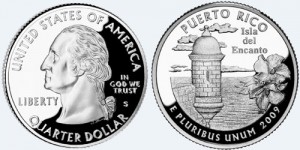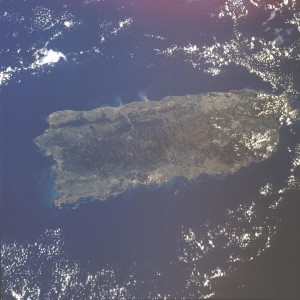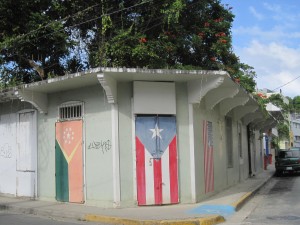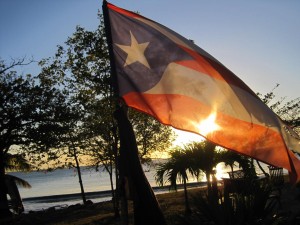Puerto Rico is an interesting place for many reasons. It is part of the United States. Anyone born in Puerto Rico is an American citizen. The U.S. dollar is used as currency. There are no customs or declarations or even passport required to travel from and to Puerto Rico from or to anywhere else in the U.S. as an American. However, Puerto Rico is technically not a state. It is a territory or commonwealth or in Spanish an “estado libre asociado” which is translated as a “free associated state.” It sets Puerto Rico into a sort of limbo status between an American state and some other country. Puerto Rico is not the only one with this transitional sort of status. Others include Guam, Northern Marianas, American Samoa and our neighbor the U.S. Virgin Islands along with quite a few sparsely or non-inhabited territories all across the globe.
Perhaps it is this limbo status that makes everything get just a little more complicated when it comes to identity (and definitely more confusing). Puerto Rico has its own “nation” team at the Olympics and competes as a country in beauty pageants and other world-wide events. As a resident of Puerto Rico, one can vote in the primary elections for President of the United States of America, but not in the actual elections and there is a non-voting representative in congress. Spanish is the preferred and most often used language, but English is also considered an official language. And in culture, Puerto Rico is an interesting mix of Latin American, Caribbean and U.S. customs. With the long history of colonization (from Columbus to the United States of America) it also makes it a touchy subject.

Puerto Rican money is United States money
All of this is to say that Puerto Rico is very unique when it comes to identity. And it makes it difficult to know how to refer to oneself, especially if you are a new resident of Puerto Rico who has come from a state in the United States of America.
For instance, you may use the term mainlander.
Mainlander: someone from the mainland. What does that mean? That you come from the main or major land? What is the mainland? The continental, contiguous 48 states? Yes, that would describe us, considering we came from Colorado which is practically smack dab in the middle of the country. However, some may say that it also subconsciously delegates Puerto Rico, (or Hawaii or Alaska for that matter) as lesser, inferior and not as important (main), so I do not like this term.
Continental: From the continent. Not only does this make me think of breakfast (ha!) but which continent? Puerto Rico is still in the North American continent right?
Or how about American?
American: someone from America. What America are you referring to? North America? Central America? South America? Latin America? The United States of America? Puerto Rico also belongs under America, and so it does not fit to use this word when distinguishing between Puerto Ricans and people from the states since they too are Americans. Although, in Spanish, “Americano” is the term I hear the most when Puerto Ricans refer to people like us.
United Statesean? Someone from the United States.
Not only does that sound awfully awkward, but even this would still refer to Puerto Rico even though it is not a “state.” In Spanish it sounds a little better “estadounidense” but not much. And to further confuse things, the United States of America is not the only “United States.” Mexico’s official country name is Los Estados Unidos Mexicanos which translates to the United States of Mexico or United Mexican States. So…technically a Mexican person is a United Statesean!
Gringo?
Gringo/gringa is a slang term. Sometimes it is used jokingly, and sometimes it is used derogatorily. It also comes bundled with skin color in addition to geography. So an African American would not generally fit the “gringo” label. It is probably the easiest way to describe someone who moves from the states, especially someone who doesn’t speak much or any Spanish, but it is probably not the most technical or PC. This term was borrowed from Mexico and now is used extensively -and absentmindedly.
Güero:
I don’t hear this one in Puerto Rico, but I heard it (güera) a lot in Mexico. It specifically refers to a blond or light skinned person. In Puerto Rico, the skin color variations don’t seem to carry as much of a cultural weight as they did in Mexico.
Anglo: As in Anglo-Saxon, from English background. This is a race designation much like White. It does not reflect the geographical and cultural differences though there is a lot tied to this word as well. It is also a pretty outdated word, like Caucasian, and to be honest most people nowadays don’t use it. It does cover some of these differences, though in modern discussions of race it would be “White, non-Hispanic” because White is considered a race and Hispanic is an ethnic designation. And while this could describe me, it obviously would not refer to all people from the states of different races, and ethnic groups including other Hispanic populations, who move to Puerto Rico.
Ex-pat: Expatriate. While moving to Puerto Rico in many ways may feel like moving to another country, unless someone has moved from another country other than USA to Puerto Rico, this term does not technically apply and really shouldn’t be used to describe people who move from the states here.
So…what do I do?
Sometimes I may use one of the above terms, but I generally say “from the states” or “stateside” since Puerto Rico is technically not a state, I feel that that is safe. Gringo is probably the most common one that most people use in English and sometimes in Spanish. In Spanish, Americano seems to be the most used term.
I hear most Puerto Ricans call themselves Puerto Rican (Puertorriqueño) or Boricua which is the ancient Taino word for the inhabitants of this island as it was once known: Borinquen. So in reference to people from here I use these terms or I may also say “from the island” (de la isla) even though Puerto Rico is technically more than one island (see what I mean by complicated!?).
And the final question: Am I now Puerto Rican?
Now that we are full-time residents of Puerto Rico, am I Puerto Rican? Though it is common to say, I have begun to feel a little uncomfortable using “Puerto Rican” as a term that excludes myself now because I am a resident of Puerto Rico. By living here I now have more in common with people in Puerto Rico than people elsewhere and so I do not want to feel an “us vs them” mentality. I am, after all, a Puerto Rican if the definition is that I live in Puerto Rico! This is now home! But I know that for many reasons there will probably always be a distinction between me and the Puerto Ricans who have been born and raised on these islands or even those whose families are from here. Just as I will always have my own ties to Colorado.
And so after all of this, I am still just not exactly sure what the best way to identify myself and others like me that is accurate, sensitive and easy. Any thoughts?
So we will continue to live in Puerto Rico with questions of identity (or at least semantics). Perhaps our own search for identity here is a reflection of the island itself as a land in search of an identity- a clear place and description in the world. Sometimes defined as a country, a nation, a territory, a commonwealth, a state, an island chain, but always, just like all of us, looking for both our unique individuality and a place to belong.



